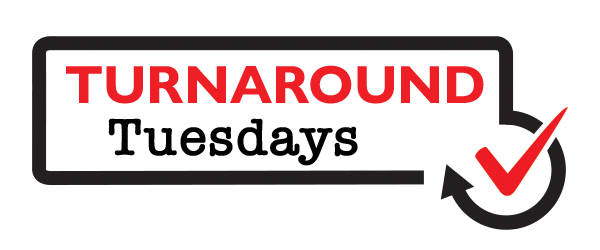Demographics:
Santa Rosa County (FL) District Schools is a high-performing rural district of about 28,000 students that stretches from the Gulf of Mexico to Alabama. The district has 33 schools, ranks in the top 6 or 7 in every category in the state, and is growing by 400 to 500 students per year.
Biggest challenge:
“In Florida, as in many states, we’d been given mandate after mandate about standardized testing, teacher evaluations, etc.,” says Bill Emerson, assistant superintendent. The district suffered from loss of teacher morale and decided to focus on improving style and pedagogy. “We needed to get our students working toward the types of skills they needed to be successful after high school.”
Solution:
The district partnered with Discovery Education and created STEAM Innovate!, an initiative focused on helping teachers get students involved in the 4Cs and away from the “sage on stage” model.
Emerson says there was a huge culture shift, but thanks to the five-year plan Discovery designed, they rolled it out slowly, starting with four innovators at 20 elementary schools. The innovators participated in five days of training each year as well as in-school coaching from Discovery; in addition, they led professional learning communities (PLCs) and opened their classrooms to help train their colleagues.
“Innovators had to apply, and we had lots of applicants,” says Emerson. In year two, five middle schools joined in; in year three, eight innovators at each high school came on board.
Recently, Emerson observed a STEAM lesson in a kindergarten classroom with 18 students. The children read Humpty Dumpty and designed a vehicle so that Humpty wouldn’t crack when he was dropped off of a ladder. “Groups of four or five students drew up ideas, built them, and tested them, and three of the four groups developed a system that kept the egg from cracking,” says Emerson. The coolest thing? Eleven of the 18 children had behavior challenges, and Emerson had no idea.
“Teacher after teacher, and parent after parent tell us kids talk about the STEAM activities,” he says. “We partnered with a local company that’s part of a global corporation and they are giving us authentic problems for our students to solve. They asked us to help fix their dangerous parking lot. Ten student teams presented their ideas, and some of those ideas were used in the final project.”
Lessons learned:
- Training is crucial to make a change like this. The teachers who want to do this kind of thing hate being out of the classroom. Trying to find a balance between getting training and missing classroom time is tricky; it’s an ongoing challenge.
- When you give something like this STEAM Innovate! a lot of attention, be careful to not diminish everyone else. People feel left out if they’re not a part of it. We say STEAMY education isn’t the only way to teach and to not be STEAMy every day. If you can start a PLC at your school and pick up ideas on how to integrate these activities, that’s more than the kids had the year before. Try to bring everyone along.
- We had no idea how popular it was to have something that was not required.
- One of our favorite parts of this program is the teacher’s ability to collaborate with each other–not just with a grade- or subject-level team. They work with teachers throughout the district.
Next steps:
Emerson says the district is teaching students important skills, but they need to better prepare kids for post-graduation. As a result, the district is beginning to think about more intentionally directing student toward an exploration of career possibilities: internships, certifications, etc.
Next week:
See how a district turned around its scheduling methods.
- Why we love our PD tools - May 13, 2019
- How one middle school is closing the technology achievement gap - May 10, 2019
- How STEM learning invigorates classrooms - May 1, 2019


